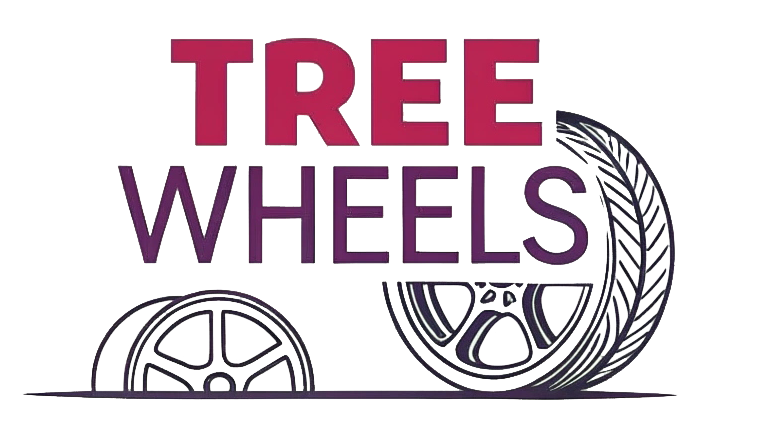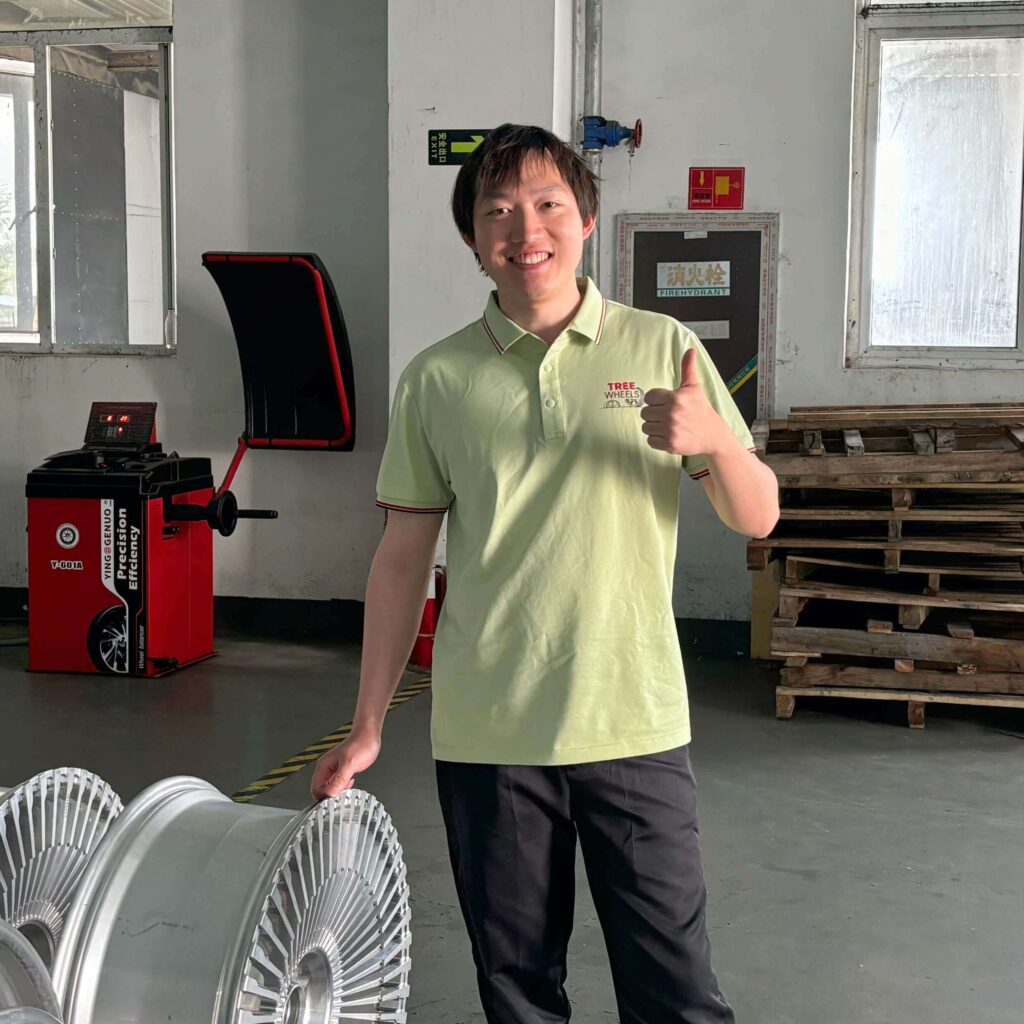Are you wondering if upgrading your car rims is a good investment? You're not alone. Many people think about custom rims, but are unsure if they actually make a car worth more.
Custom rims don't usually add much to a car's resale value in terms of pure cost. However, they can greatly increase the personal value and appeal of your car, especially if you prioritize style and individualization.

Changing your car's rims is a big decision. You want to make sure it's the right move. Let's explore if new rims are really worth it.
Do Rims Add Value to a Car?
Thinking about new rims? You're probably wondering if they'll pay off when you sell your car. It's a common question for anyone looking to customize their ride.
Generally, rims alone don't significantly increase a car's monetary value on the used car market. Car value is mainly based on things like mileage, condition, and overall market demand, not just rims.

But don't stop reading yet. There's more to the story than just dollars and cents. Let's really get into what kind of "value" we're talking about.
Financial Value vs. Personal Value
When we talk about "value," there are different ways to look at it. From a purely financial standpoint, custom rims are like most car upgrades. They often don't return your investment when you sell. Think about it – a buyer might not share your taste in rims, or they might prefer the original factory look. Car value sites and appraisers focus on standard features and depreciation, not personal modifications.
To understand the difference more clearly, let's break down financial value and personal value:
| Feature | Financial Value | Personal Value |
|---|---|---|
| Focus | Monetary return upon resale | Enjoyment and satisfaction for the owner |
| Market View | Based on general market standards | Subjective and individual |
| Impact of Rims | Minimal to negligible increase | Potentially significant increase |
| Appraisal | Ignored or not valued by appraisers | Highly valued by the owner |
However, there's also personal value. This is about how much you value the rims. Do they make you happy every time you see your car? Do they make driving more enjoyable? For many car enthusiasts, the answer is a definite yes. I remember when I first upgraded the rims on my old car. It wasn't a fancy car, but those new rims completely changed how I felt about it. Suddenly, it felt more like mine. That feeling, that personal enjoyment, is a type of value that's hard to put a price on. So, while rims might not boost resale value much, they can definitely boost your personal enjoyment and satisfaction with your car.
What are the Benefits of Custom Wheels?
Tired of your car looking like everyone else's? Want to make it stand out? Custom wheels are a popular way to do just that. But are there benefits beyond just looks?
Custom wheels offer several advantages. They can enhance your car's appearance, improve handling, and even offer performance benefits depending on the type and design you choose.

Looks aren't everything, but they are something! Let’s look at all the good things custom wheels can bring.
Style and Personalization
Let's face it, the most obvious benefit of custom wheels is style. They let you express your personality and make your car unique. Factory wheels are often designed to be safe and appeal to the widest possible audience, which means they can be a bit… boring. Custom wheels come in countless styles, sizes, and finishes. You can choose something that perfectly matches your car's color, your personal taste, and the overall look you're going for. Want a sporty, aggressive look? Go for larger diameter, wider wheels with a dark finish. Prefer a classic, elegant style? Consider smaller, polished wheels with a timeless design. The options are endless. For me, choosing custom wheels was like picking out new shoes for my car – it completely transformed the whole outfit! It’s a chance to really make your car yours.
Performance and Handling
Beyond looks, custom wheels can also improve your car's performance and handling. This is especially true if you choose lightweight forged wheels. Lighter wheels reduce unsprung weight, which is the weight that the suspension has to control. Reducing unsprung weight can improve your car's responsiveness, making it feel more agile and nimble. It can also improve braking and acceleration. The size and width of your wheels also affect handling. Wider wheels can provide better grip, especially in corners. However, it's important to choose the right size and offset for your car. Incorrectly sized wheels can actually worsen handling and even damage your car. It's always best to consult with a wheel specialist to ensure you're choosing wheels that are both stylish and functional. While I'm not a race car driver, I did notice a difference in how my car felt after upgrading to lighter wheels. It just felt more responsive and fun to drive.
Quality and Durability
Custom wheels, especially forged wheels, are often made with higher quality materials and manufacturing processes than factory wheels. Forged wheels, for example, are stronger and lighter than cast wheels. This means they are more resistant to damage from potholes and impacts. They can also last longer and maintain their appearance better over time.
Let's compare factory wheels and custom wheels in terms of quality and durability:
| Feature | Factory Wheels | Custom Wheels (Forged) |
|---|---|---|
| Material | Typically cast aluminum alloy | High-grade forged aluminum alloy |
| Manufacturing | Cast, mass-produced | Forged, often more carefully crafted |
| Strength | Standard durability | Enhanced strength and impact resistance |
| Weight | Moderate to heavy | Lighter, improving performance |
| Longevity | Designed for vehicle lifespan | Potentially longer lifespan |
| Damage Resistance | Standard resistance | Higher resistance to bending/cracking |
While you can find cheaper custom wheels, investing in quality wheels from a reputable brand can be a worthwhile investment in the long run. They can provide better performance, improved safety, and a longer lifespan. Think of it like buying a good pair of shoes – they might cost more upfront, but they'll last longer and provide better support than a cheap pair. Choosing quality wheels is choosing peace of mind and long-term value.
What Increases the Value of a Car?
Thinking about selling your car down the road? Everyone wants to get the best possible price. So, what things actually make a car more valuable to buyers?
Several factors boost a car's value. Low mileage, excellent condition, desirable features, and a strong service history are key. Keeping your car well-maintained and appealing to a broad range of buyers is crucial for maximizing resale value.

Let's get into the real things that matter when it's time to sell your car and get your money back.
Mileage and Condition
Mileage and condition are two of the biggest factors affecting a car's value. Lower mileage generally means less wear and tear, and a longer remaining lifespan for major components like the engine and transmission. Excellent condition, both inside and out, also signals to buyers that the car has been well-cared for. Regular maintenance, timely repairs, and keeping the car clean all contribute to maintaining its condition and value. A car with high mileage and visible wear and tear will naturally be worth less than a similar car with low mileage and pristine condition. It's simple supply and demand – buyers are willing to pay more for cars that are perceived as being newer and in better shape. I always try to keep my car clean and get regular services. It's not just about resale value, it's about pride of ownership and enjoying my car while I have it. But knowing it helps with resale value is a nice bonus.
Features and Options
Certain features and options can also increase a car's value. Desirable features vary depending on the type of car and current market trends, but some consistently add value. These often include things like leather seats, a sunroof, navigation system, advanced safety features (like blind-spot monitoring or adaptive cruise control), and a premium sound system.
Here are some features that generally increase car value:
| Feature Category | Examples | Value Impact |
|---|---|---|
| Comfort & Convenience | Leather seats, sunroof, premium sound system | Moderate to High |
| Technology | Navigation, advanced safety features | Moderate to High |
| Performance | Upgraded engine (factory option) | Moderate (for some models) |
| Safety | Blind-spot monitoring, lane assist | Moderate to High |
| Exterior | Desirable factory paint colors | Slight to Moderate |
Cars with popular and sought-after options tend to be more attractive to buyers and can command higher prices. However, it's important to remember that not all options add equal value. Some features might be trendy now but could become outdated quickly. It's generally safer to focus on features that are known for long-term appeal and practicality. When I was car shopping last time, I was definitely willing to pay a bit more for a car with features I knew I would use and enjoy, like a good sound system and comfortable seats.
Service History and Reputation
A complete and well-documented service history is a huge plus for car value. It shows potential buyers that the car has been properly maintained and that any issues have been addressed promptly. Keeping records of oil changes, tire rotations, brake replacements, and any other maintenance or repairs builds confidence and trust. A car with a clear and consistent service history is seen as less risky and more reliable. Conversely, a car with no service records or a history of neglect will be viewed with suspicion and will likely be worth less. Beyond service history, the overall reputation of the car model and brand also plays a role. Cars from brands known for reliability and longevity tend to hold their value better. Similarly, models with a reputation for being well-built and dependable are more desirable in the used car market. I'm a stickler for keeping all my car service records organized. It gives me peace of mind knowing I have a history of everything, and I know it will be helpful when I decide to sell.
Do Aftermarket Parts Increase the Value of a Car?
Thinking of adding some aftermarket goodies to your ride? Spoilers, fancy lights, maybe even engine upgrades? You might be wondering if these parts will make your car worth more when you sell it.
Generally, aftermarket parts do not significantly increase a car's resale value, and in some cases, they can even decrease it. Most buyers prefer cars in original condition, and modifications are often seen as personal preferences that may not align with theirs.

Before you go wild with modifications, let's understand how they really affect your car's value in the long run.
The Subjectivity of Modifications
The biggest reason aftermarket parts don't usually increase value is subjectivity. What you consider a cool upgrade, someone else might see as a downgrade, or just not their style. Car modifications are very personal. Your taste in rims, spoilers, or even performance upgrades might not match the taste of a potential buyer. Factory cars are designed to appeal to a broad audience. Modifications, by their very nature, cater to a narrower, more specific taste. When selling a modified car, you're essentially hoping to find a buyer who shares your specific preferences. This can narrow your pool of potential buyers and make it harder to get your desired price. I learned this the hard way when I tried to sell a car I had heavily modified in my younger days. While I loved all the changes, most buyers were just not interested.
Cost vs. Perceived Value
Another factor is the cost of aftermarket parts versus their perceived value. You might spend a lot of money on high-quality parts and professional installation. However, potential buyers are unlikely to value these parts at the same cost. They might see them as used parts, regardless of how new or expensive they were. They might also be concerned about the quality of installation or the potential impact of modifications on the car's reliability and warranty. From a buyer's perspective, they are often taking on added risk and uncertainty with a modified car. This is why they are often hesitant to pay extra for modifications, and in some cases, may even expect a discount. It's important to remember that the money you spend on aftermarket parts is primarily for your own enjoyment, not as an investment to increase resale value.
Exceptions and Considerations
While aftermarket parts generally don't increase resale value, there can be exceptions. Certain subtle and tasteful modifications, especially those that improve the car's functionality or address known issues, might be viewed more favorably. For example, upgrading to better quality brake pads or tires, or adding a discreet and well-integrated performance exhaust system, might be seen as improvements rather than just personal customizations. However, even in these cases, the increase in value is likely to be minimal. It's also worth considering the type of car you own. For certain niche vehicles, like classic cars or performance cars, tasteful and period-correct modifications might be more accepted and even appreciated by enthusiasts. However, for most everyday cars, sticking to original condition is usually the best strategy for maximizing resale value.
Conclusion
Custom rims are cool, but for car value, they're more about personal style than money. Focus on keeping your car in great shape if you want to boost its worth when selling.



